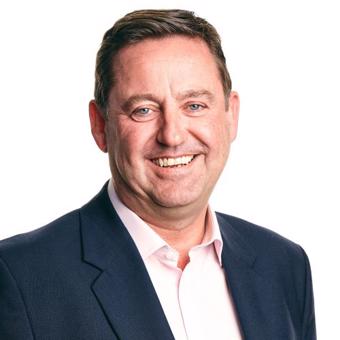Steven Webb - company secretary and GC at Premier Farnell plc – on the business, international working and moving in-house
Steven, can you tell us a bit about Premier Farnell?
Our core business is the global distribution of electronic components. In recent years we have expanded our range of products and services to include design and manufacturing and the sale of software. We have a physical presence in over 30 countries and sell in to well over 100. We hold half a million products in stock and source many more to meet customer demand.
You’ve been at the company since 2000 so how has your role developed over that time?
While my job title has stayed the same, the content has constantly varied. Our on-line presence has increased dramatically, with sales through e-channels at over 50%, with a target to achieve 70%. Our business in Asia Pacific has grown dramatically and I was particularly involved with our expansion in China and India. I have always got involved in areas outside the purely legal and have run the strategy review for a new CEO, worked on re-branding exercises and been responsible for the Group's CSR programme.
What have been your biggest/ more exciting projects since being in post?
My background is as a corporate lawyer and I still enjoy acquisitions. During my time at Premier Farnell, I have completed deals in China, India and Germany, with the one in Germany being the first time I have been involved in buying a software business. It was a steep learning curve to identify the key points for due diligence, but that made it all the more interesting.
How involved are you in the business’ international legal teams?
I have team members based in Leeds, London, Munich, Shanghai and Chicago. The global head of insurance also reports to me and she is based in Cleveland. With such a spread of time zones and large distances, it is difficult to get the whole team together frequently, but we do have a monthly video conference that everyone attends. In between, we stay in touch with one to one calls and by email. Often a piece of work will involve more than one region and that is a great opportunity for colleagues to work together and that is fantastic for creating strong relationships.
You lead the group’s approach to CSR. Why is that important to the business?
Ever since I have been involved I have been very clear that anything we do must have a business benefit. The reductions we have achieved in our carbon emissions have come from reducing energy consumption and therefore cost. Giving employees time to carry out volunteering activities has improved engagement, but we have also structured those activities to support personal development. I know from personal experience that talking to a science class of secondary school children about how solar power and LED technology could help off-grid communities in Africa tested my presentation skills significantly! The supply chain for electronic products is subject to substantial environmental and ethical trading legislation, from excluding harmful substances such as lead and Mercury to avoiding the use of minerals sourced in conflict zones. We have to address these across our huge range of products.
What’s next for Premier Farnell?
While our core business of component distribution is by far the largest and most important, we have many exciting opportunities in new areas. We are the largest distributor of the Raspberry Pi (a credit card sized computer) that has had an amazing impact since its launch in 2012. This, and similar powerful but very inexpensive technology, has enabled the whole "Maker" movement - individuals working at home or in small businesses to design and manufacture new products. Much of this technology will also feature in Internet of Things solutions. Both of these are areas where we have a head start on our competition and I am just completing a review of our approach to them as executive sponsor for an internal team.
You’ve worked at Walker Morris and Norton Rose. What made you move in-house?
Although I enjoyed doing M&A in law firms, it was always what happened before and after the transaction that interested me most. Why did the client company choose to buy/sell? what were their expectations? did the deal achieve the business benefits they had hoped for? I expected that moving in house would get me involved in making decisions, not just implementing them.
What were the biggest challenges?
In my first in-house job I was the sole lawyer and Company Secretary and the company launched a £500 million, multi-jurisdiction acquisition within a couple of months of me joining. Learning the new role while leading the legal aspects of the acquisition and dealing with all of the day to day legal questions from my new colleagues was a huge challenge. In a wider sense, quickly understanding that telling a colleague "you could do X or you could do Y" and leaving them to make the choice wasn't going to cut it in-house.
Have you ever thought about switching back to private practice?
Not in a fee-earning role. I do believe that part of a private practice lawyer's training should be about what clients' really value and I think I would have a lot to contribute to a law firm in that area. Getting the right answer to most legal questions is a commodity that I can buy from hundreds of law firms and thousands of lawyers. Being a bright lawyer with good training only makes you one of that large group and I often see little thought being given to what will make the difference to a client.
Can you tell us a bit about your work with Leeds Beckett University?
I have been a lay governor (effectively a non-executive director) of the University for four years, including a six month period as interim Chairman of the Board. The University has annual revenues of £200 million, over 3,000 employees and around 25,000 students. In an increasingly competitive market, this is a substantial organisation that is having to behave much more commercially. As well as using my business experience to support the executive management and exercise the necessary oversight, being on the board has allowed me to identify a number of opportunities for collaboration between the University and Premier Farnell. For example, we have provided a laboratory on our premises for Leeds Beckett electronic engineering students to use for project work and we are supporting the course leaders with curriculum design. The students benefit from an opportunity to work in a business environment and we see them as potential employees, customers or advocates of the future.
Finally, do you have any tips for our readers who may be thinking about in-house?
Unless you join a very large company with a big in-house department, you will probably have to be much more self-sufficient than you are in a law firm. You will have to deal with a huge variety of questions and give clear and unambiguous answers without the luxury of a whole team of colleagues to discuss the point with. It is quite likely that the person asking the question will be standing in front of you expecting an answer on the spot! It that worries you, think again. If it sounds exciting, stimulating and liberating, in-house may be perfect for you.









